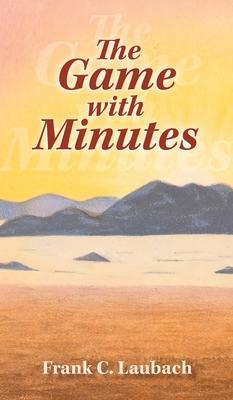The Game with Minutes (1953) by missionary Frank C. Laubach is a short work that asks Christians to bring Christ into every minute of their day. Rather than approaching this goal as a chore, the book treats it as a game that will feed the practitioner's soul and lead them to a greater, more joyful relationship with Christ.
American missionary, writer, and literary advocate Frank C. Laubach (1884-1970) spent much of his life building evangelical churches and spreading Christianity throughout the Philippines. As part of his religious work, he also placed a heavy emphasis on literacy, developing an "each one teach one" method encouraging new readers to help others. His work led to an explosion of literacy across the island.
During his missionary work in the Philippine city of Dansalan (renamed Marawi in 1956), Laubach wrote a series of letters to his father. It's in one of these letters, dated January 20, 1930, that he first mentions his new plan of bringing Christ into every minute of his life. After his own experimentation with a fuller submission to God, Laubach found great spiritual growth and renewal from the practice.
A few years after writing that letter, he published this short tract, The Game with Minutes, in the Philippines. It's immediately clear that what began as a personal experiment had grown into a philosophy that he was eager to share with the world. To bring Christians closer to God, Laubach recommends a two-part strategy that will bring Christ into their lives more fully. Taking the disciples as his guides, who were asked to spend every hour talking, working, resting, eating, and being with Christ, he suggests a two-part strategy for the modern Christian.
First, he suggests a daily study hour in which to read and re-read the life of Jesus in the Gospels. And second, he asks the reader to call Christ to mind at least one second of every minute, inviting Him to share in everything we do. This practice allows Christians to continue living their normal lives, taking nothing away from their work or leisure but bringing Christ into their everyday lives.
"We call this a 'game, '" he writes, "because it is a delightful experience and an exhilarating spiritual exercise; but we soon discover that it is far more than a game."
Laubach includes recommendations for playing the game, with ways to incorporate thoughts of Christ into church, while walking on the street, in a crowd, in conversation, at mealtimes, while reading or studying, when thinking, just before sleep, and more. Through this consistent thought, Laubach explains, we can find a better relationship with Christ, purer minds, greater contentment and ease of mind, and fewer jealousies, grudges, and prejudices.
But these rewards do not come without a cost. There is the effort and perseverance necessary to stick with the game. There is the surrender of our wills to God. And he proposes the requirement to spread the word of the game to others who may be helped by it.
Laubach believed that playing this game could have an enormous impact on the world, as well as the individual. Among his contemporaries, he noticed that less than half of Christians attended church services regularly and that the sermons they heard only occasionally spoke about Christ.
"Less than ten minutes a week given to thinking about Christ by one-sixth of the people is not saving our country or our world; for selfishness, greed, and hate are getting a thousand times that much thought. What a nation thinks about, that it is."
It was his hope that by playing the game, Christians could become a stronger force for good-not through coercion or proselytizing, but by bringing Christ into every minute of the day and every interaction in the world.
